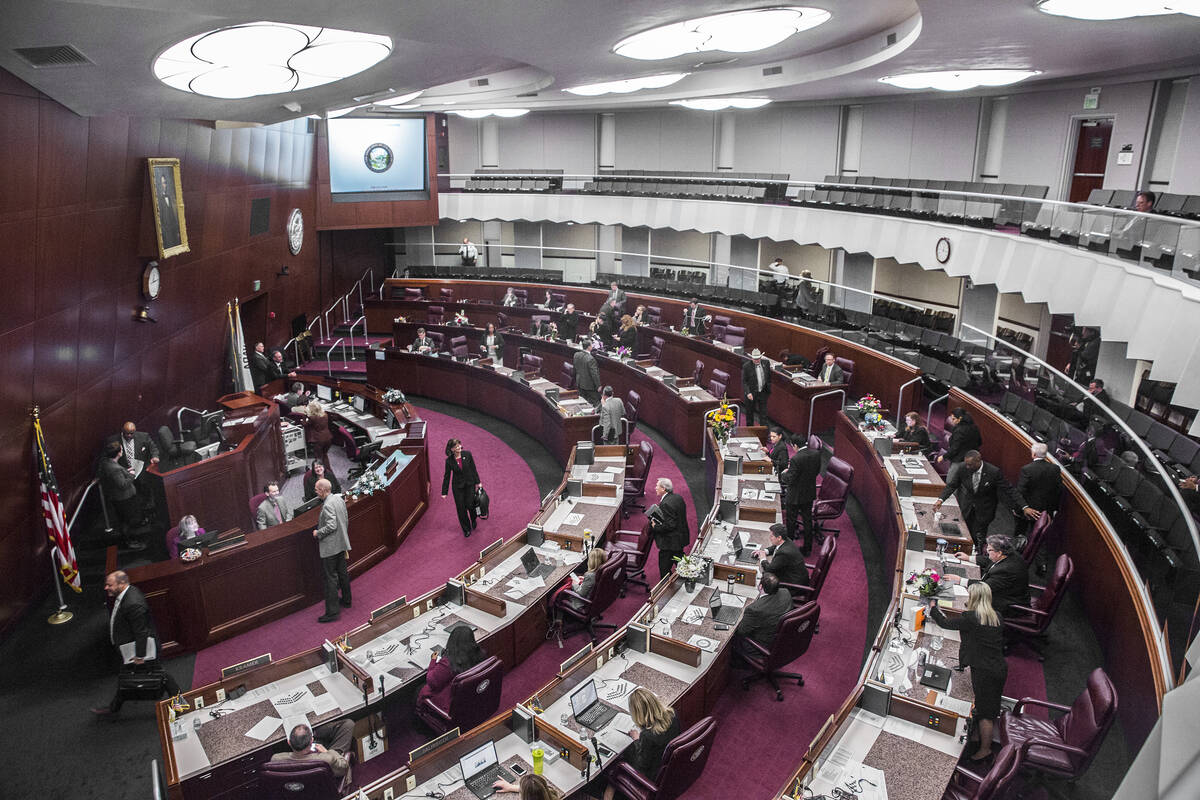EDITORIAL: Democratic gerrymandering pays dividends
Nevada Democrats have spent the past few weeks congratulating themselves for their performance in the midterm election, never mind that that they lost the governor’s race and two other statewide constitutional offices. But winning becomes much easier when you’re the ones drawing the maps.
It’s true that, in many instances, Democrats offered voters better candidates than those the GOP put on the ballot. It’s also a fact that state Republicans have been woefully inept in recent years at matching the effectiveness and efficiency of the Democratic election apparatus. But let’s not underestimate the role of gerrymandering.
Democrats have firm control in Carson City, so their redistricting legislation — signed by Gov. Steve Sisolak in 2021 — was a case study in home cooking. They rejiggered the state’s congressional boundaries to help two incumbents in potential swing seats. The move worked. Had the new lines not shifted additional Democratic voters into Nevada’s 3rd and 4th congressional districts, both Reps. Susie Lee and Steven Horsford probably would have lost.
Their scheme was most evident in legislative contests. Democrats picked up two Assembly seats, giving them a 28-14 supermajority. They also added one seat in the state Senate and now enjoy a 13-8 edge, just one vote shy of a coveted two-thirds majority in the upper chamber.
Yet consider the aggregate vote total in Clark County Assembly races. Democratic candidates received 52.4 percent of all votes cast, yet the party will now control 83 percent — 24 of 29 — of Southern Nevada’s Assembly seats.
Nationally, Democrats have become obsessed in recent years with the idea that statistical disparities in any aspect of life signify some nefarious intent and that democracy is on the verge of collapse if the popular will is not adequately represented in our political institutions. This has led many on the left to call for the abolition of the Electoral College and has prompted progressive attacks on the legitimacy of the U.S. Senate, which gives small states the same power as large ones.
It has also led to lawsuits contending that legislative districts should be struck down by the courts if they don’t result in proportional representation, whether by race or political preference. Just five years ago, Democrats argued that GOP-drawn boundaries in Wisconsin were unconstitutional because they created an “efficiency gap” and disproportionately benefited Republicans.
Will this concern about an “efficiency gap” now also extend to Nevada? Ha, ha. Apparently, gerrymandering is a threat to the republic’s survival only when practiced by Republicans.
Regardless, the U.S. Supreme Court has refused to empower the judiciary with policing most redistricting disputes. “Federal judges,” a majority of justices ruled in 2019, “have no license to reallocate political power between the two major political parties, with no plausible grant of authority in the Constitution, and no legal standards to limit and direct their decisions.”
Indeed, drawing district maps is inherently political no matter who wields the pen. Better to keep it in the hands of elected lawmakers or voter-approved commissions than lone judges imposing arbitrary standards nowhere to be found in the statutes.
There may be all sorts of prosaic reasons for various statistical disparities, and aggregate election totals can be influenced by several factors, including turnout, candidate quality and unopposed incumbents. But to secure a commanding advantage in the Assembly on the basis of winning a narrow majority in Clark County is a testament to the ability of legislative Democrats to play the gerrymandering game.
If Nevada Republicans hope to fight back, they’ll need to start winning elections.




























